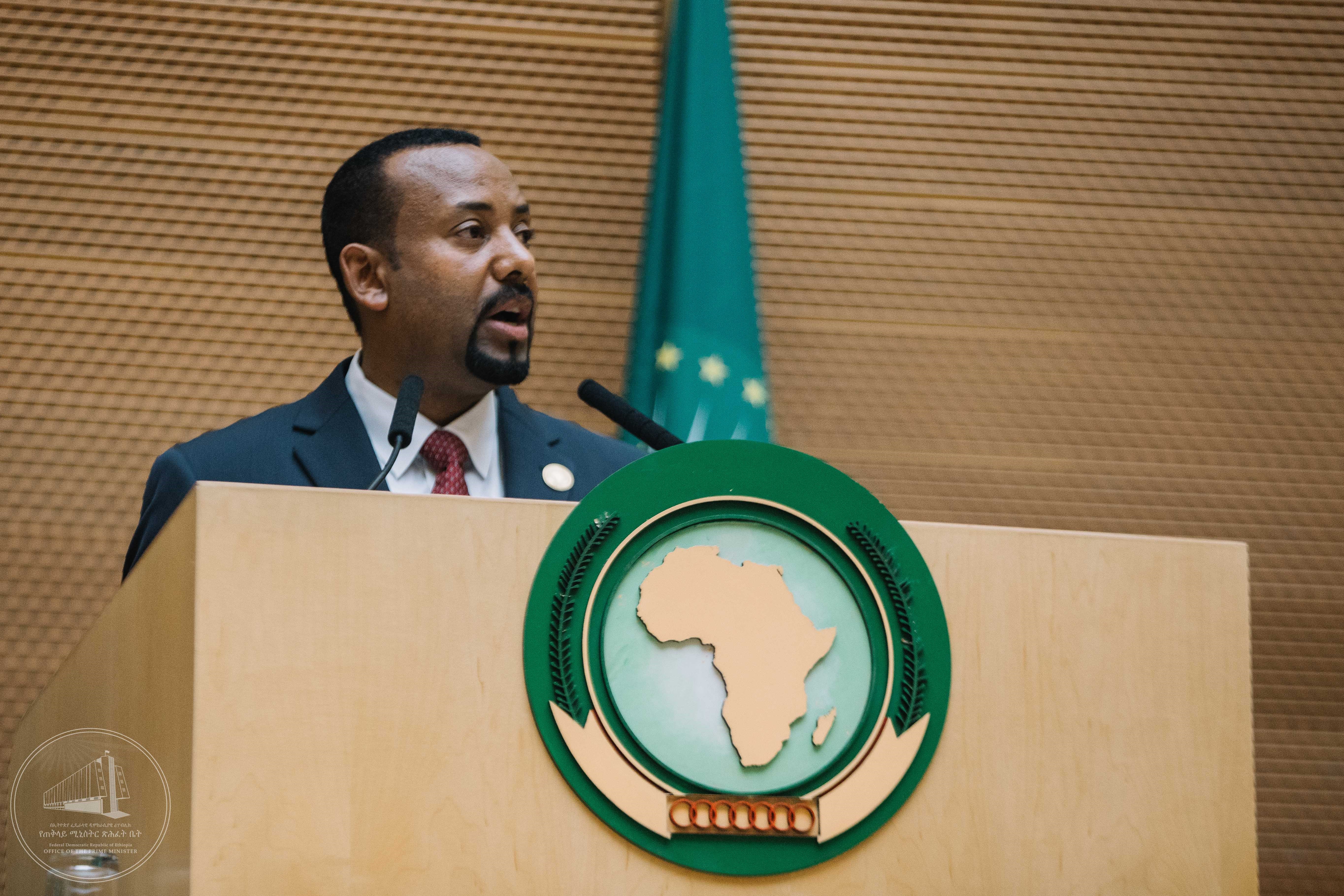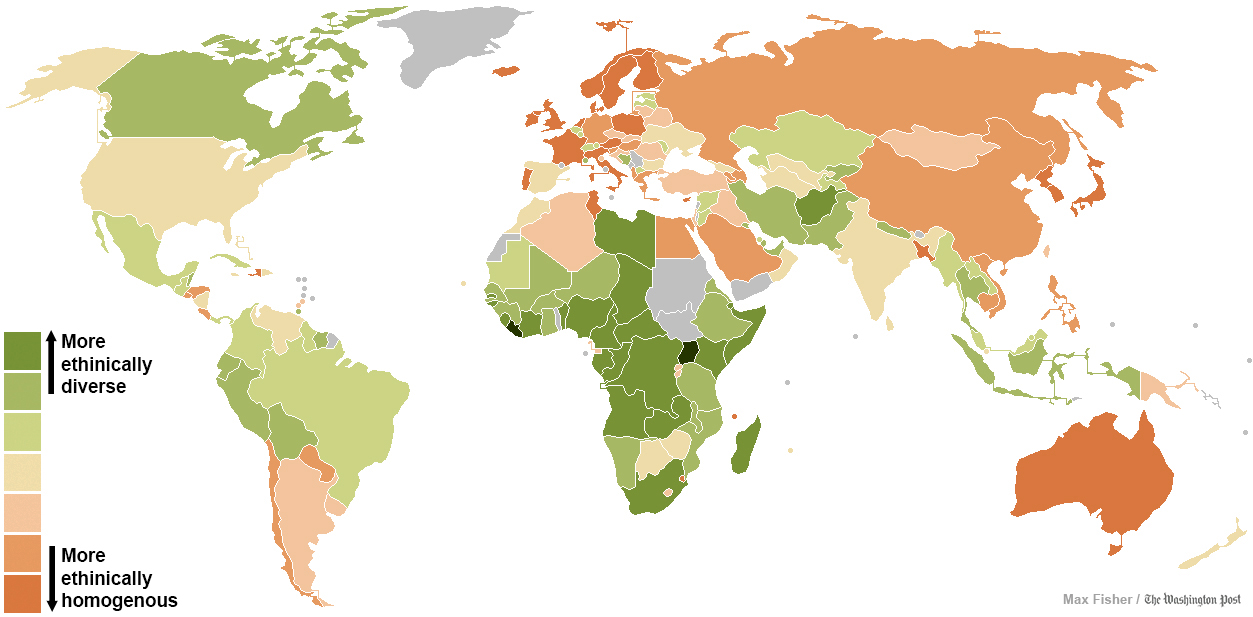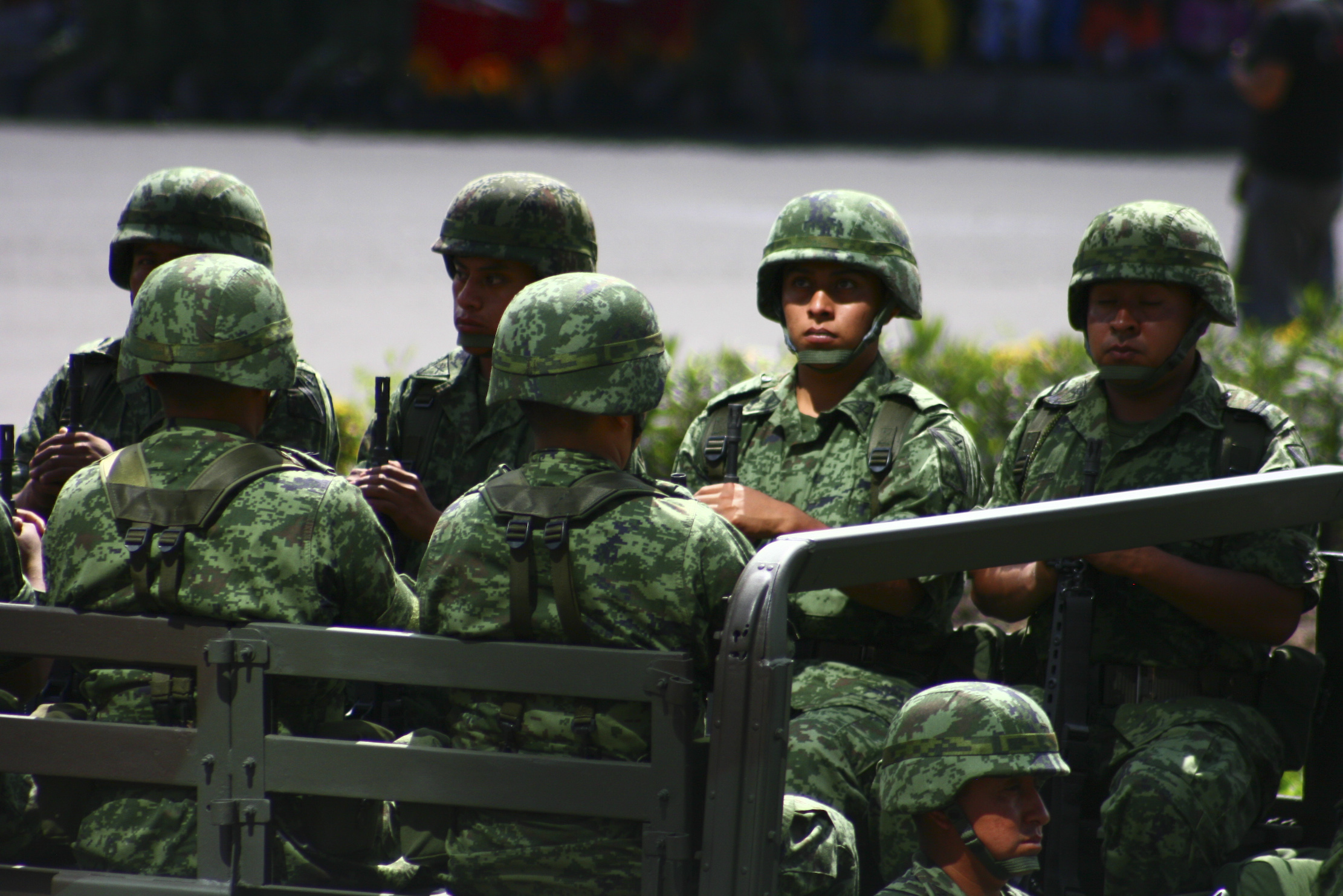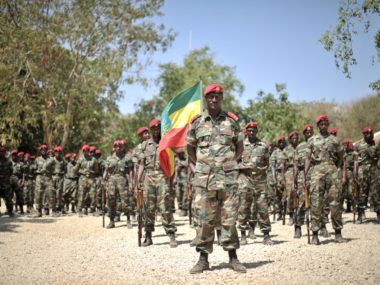By Timothy Sisk
Today, 43-year old Ethiopian Prime Minister Abiy Ahmed Ali was awarded the 2019 Nobel Peace Prize in a lavish ceremony at Oslo City Hall. The Norwegian Nobel Committee cited two major contributions by Ahmed to peace.
First, the Committee lauded Ahmed for clinching a peace deal with Eritrean president Isiah Afwerki (who, notably, did not share in the award). In the July 2018 deal, reached at a landmark summit between the two foes, Ahmed agreed to finally fully implement the outcome of the 2000 Algiers Agreement, a pact to end the brutal 1998-2001 war between Ethiopia and Eritrea, which cost tens of thousands of lives. The anachronistic conflict—which was sparked over a dispute over a small border town—is exceptionally rare in the international system according to Uppsala’s Conflict Data Program.
Second, the Committee pointed to Ahmed’s role within Ethiopia, as a newly minted reformer and putative democratizer. Ethiopia has a long history of autocracy, ethnic and religious strife, regional conflict, and acute economic and environmental insecurity. Elections in 2015 entrenched control by the long-ruling Ethiopian People’s Revolutionary Democratic Front, and significant reform of both the antiquated electoral system and the management of the electoral process itself will be critical as Ethiopians go to the polls in May 2020.
Since taking office in 2018, Ahmed has lifted the state of emergency, released political prisoners, and pardoned opposition leaders—classic democratization stuff. The Committee lauded Ahmed’s “important reforms that give many [Ethiopian] citizens hope for a better life and a brighter future.”
This Peace Prize fits within a tradition of prizes for peace to protagonists in democratization struggles. The 1983 prize to Lech Valęsa is a notable precedent. Under chairperson Francis Sejersted, prizes were awarded Michael Gorbachev (1990) and Aung San Suu Kyi (1991), to nudge them along and possibly help them achieve their goals. The 2015 prize to the Tunisian National Quartet, following the disastrously described “Arab Spring,” is the most recent precedent of a prize to democratizers. The prize has also been awarded as a means of “positive inducement” to those engaged in peace processes: the joint prizes to F.W. de Klerk and Nelson Mandela (1993); to Yasser Arafat, Yitzhak Rabin, and Shimon Peres (1995); and most recently to Colombian President Juan Manuel Santos (2016).
In awarding the prize to Ahmed early in his tenure as prime minster, the committee made a worthy bet. Though only time will tell, Abiy seems truly Mandela-like in his intention to seek innovative and bottom-up ways to address the challenges of social cohesion in Ethiopia’s deeply divided society, despite forces arrayed against his reforms and a democratization process beset with crises. Indeed, Ahmed seems to be uniquely qualified to understand Ethiopia’s complex religious and ethnic landscape: an Oromo (Ethiopia’s largest identity group), Ahmed stems from an interreligious family, came up through the ranks of the Ethiopia military, served as a peacekeeper in Rwanda, and later as a parliamentarian devoted to peace. His PhD dissertation at the Institute of Justice and Peace Studies at Addis Ababa University evaluated community-level inter-religious reconciliation and peacebuilding.
With a story like this, combined with persuasive words and deeds, the bet on Ahmed by the Committee seems warranted. Still, as in the troubled case of Laureate Aung San Suu Kyi, such bets are inherently risky. The Nobel Committee must have concluded that Ahmed is the real thing.
In accepting the Prize, Ahmed said: “War is the epitome of hell for all involved. I know because I have been there and back.”
A Bright Light in a Bleak Landscape
The 2019 Peace Prize wasn’t only about Ethiopia. Indeed, the prize this year seems selected to highlight one of the few bright spots in a global landscape that portends peril for the future of democracy. Democratization is increasingly rare, and progress toward SDG16+—the UN’s goal to improve governance globally in concert with other development aims—has been disappointing.
Last week, the International Institute for Democracy and Electoral Assistance (IDEA) released the second volume of its new biennial series that seeks to be a “health check” on the state of democracy worldwide. The Global State of Democracy 2019: Addressing the Ills, Reviving the Promise echoes the 2017 report (in which I was involved) on democracy’s resilience, but also makes for some devastating reading. The report finds that the trend toward “democratic erosion” is real: in a series of assessments of the state of democracy in all the world’s major regions, the authors collectively find that “both old and young democracies are suffering from a shrinking civic space, with declines in civil liberties, clampdowns on civil society, and restrictions on freedom of expression.”
This year’s Peace Prize is a welcome counter-narrative to the global gloom about democracy’s doom, and a well-deserved award for a courageous man working to transform his country. For democracy and peace in Ethiopia, the true test lies ahead: once the glow of the prize subsides, the 2020 elections looms. Hopefully, the prestige of the Peace Prize can help Ahmed navigate the elections and bolster efforts to address the endemic internal violence that continues to beset Ethiopia. For the world, as political protests against autocracy and repression surge globally, from Bolivia, to Egypt, to Hong Kong and beyond, the 2019 prize reflects that there is still some optimism, even in the depth of Winter in far-northern Oslo, of a brighter future for democracy in the world.







